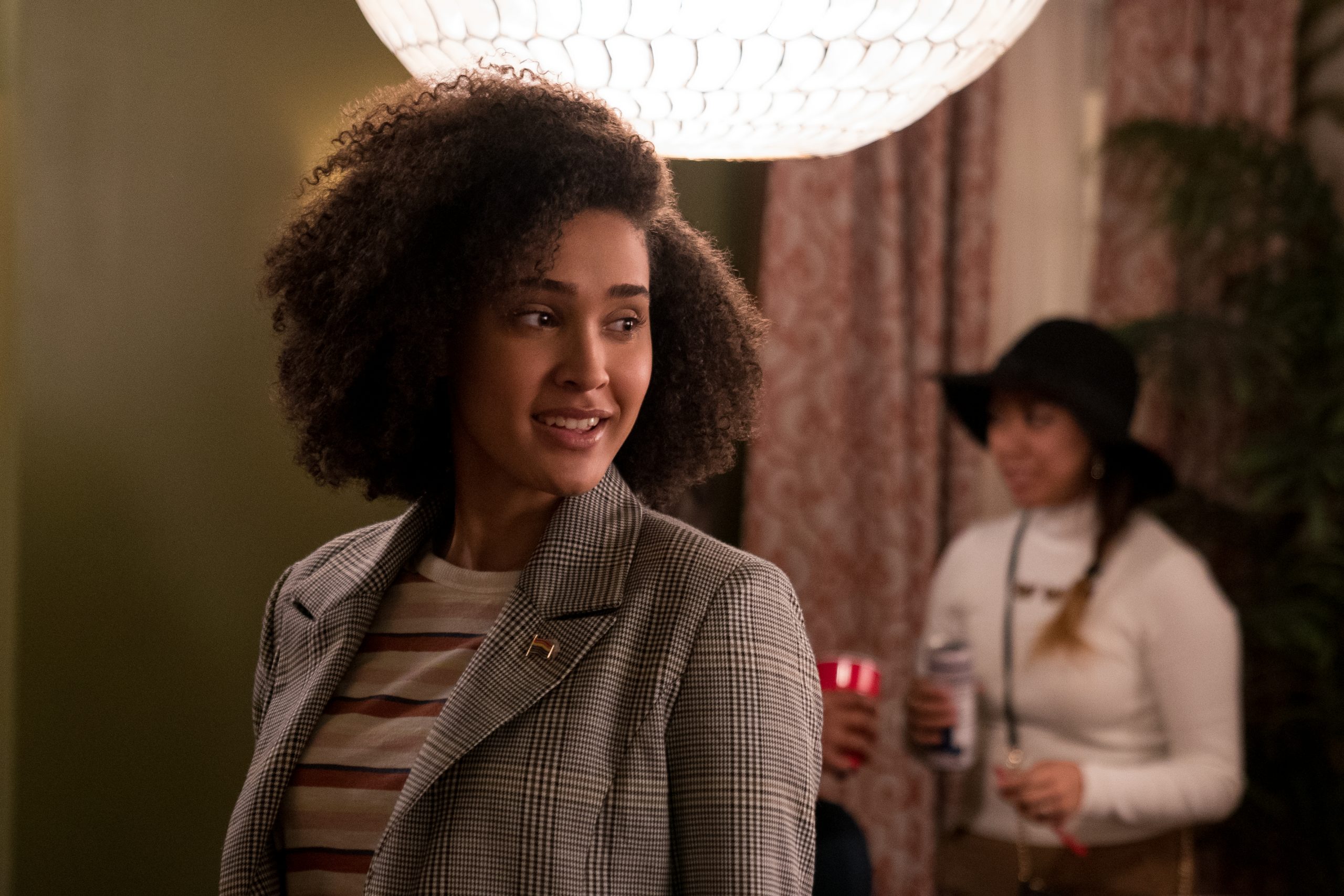I wasn’t sure what to expect when I saw that Netflix had dropped the second season of Never Have I Ever, the comedy-drama series created by The Office veteran Mindy Kaling and based on her childhood in Boston. To be honest, I barely remembered hearing about its debut last year and had just finished the chaos that is HBO’s Euphoria. But the thing that differentiates Never Have I Ever from other series—besides its groundbreaking South Asian representation, actually realistic depiction of today’s high school experience, and infuriating but hilarious Indian-American protagonist Devi Vishwakumar—is Fabiola Torres, the shy, nerdy, robotics-loving, polo shirt-wearing wearing Afro-Latina lesbian I’ve been waiting for.
Played by Black-Mexican-American actor Lee Rodriguez, Fabiola makes herself a scene-stealer from the get-go. Wearing what Devi hilariously describes as the outfit of “a helpful Honda guy,” it’s clear that Fabiola, in her polo shirt and khakis, isn’t exactly comfortable in her own skin. After all, what fifteen-year-old is?

But I still found myself intrigued. Though she doesn’t appear in the show as often as I’d like, Rodriguez makes Fabiola look like a second skin, and you can’t help but like her for her earnestness, wide-eyed humor, and steadfast loyalty to her friends that Devi is frequently testing.
In the pilot, we see Fabiola, despite her uncertainty, follow Devi’s plan to change the social status of their three-membered friend group, making classmate Alex Gomez her boyfriend and attempting to go from robot-obsessed outcast to cool kid just to make Devi happy.
The snag in the plan? For every shot of Fabiola holding hands and going out for ice cream with Alex, there’s another where she’s gazing at Eve, a blonde pixie cut classmate who seems to be looking back in the same way. She tries to deny it, pushing Eve away and doing everything she can to prove her straightness to her friends and the whole school.
By the third episode, however, she’s broken up with her boyfriend, realized she’s a lesbian, and immediately started worrying about how she’ll break the news to her mom, who up to this point has been beyond excited at Fabiola’s newfound interest in “normal” activities outside of being captain of the robotics club.

Though I may not be much into science, I still found myself relating a lot to Fabiola’s worries about navigating a queer identity, especially in a Latinx family. I’m not even out yet to most of my relatives but that only made me cry that much harder when Fabiola tries to come out to her Mexican dad and Black mom, and finds she can’t, and then again when she tells her mom she’s gay and receives a hug, reassurance of her mom’s love, and an inside joke to make them both laugh with relief—basically, the perfect coming out experience.
For me, her relatability didn’t stop there. Even though she has everything she wants by the end of the first season—her family’s acceptance, her friends’ support, and Eve as her girlfriend—in the newest episodes where she’s finally a series regular, we watch her struggling to fit in with other queer kids at school after coming out (Love, Victor, anybody?).
Being Eve’s girlfriend, Fabiola realizes very quickly that she’s not a “cool gay,” which is only made worse when they run for Prom Queen and Queen, and she finds she can’t talk queer pop culture at all. Just like her, I’ve never watched The L Word. I’m not caught up on LGBTQIA+ history before Stonewall and, despite seeing the photos from the 2019 Met Gala, still can’t explain what camp means.

True, Never Have I Ever centers East and South Asian experiences first, and deals brilliantly with themes of grief, trauma, and first love versus the right one. But shining bright on the sidelines is Fabiola, well on her way to discovering, like the rest of us, that there’s no one right to be gay.
When she and her robot accept her Prom Queen crown-wearing her signature “helpful, Honda guy” outfit (having ditched the Eve-approved leather jackets and jeans), that’s the moment I knew – Fabiola finally accepts her identity in all its intersectionality, individuality, and nuance. And being bisexual, being Latina, watching that kind of queer experience, well, that will never stop being beautiful to me.
The second season of Never Have I Ever is now streaming on Netflix.

